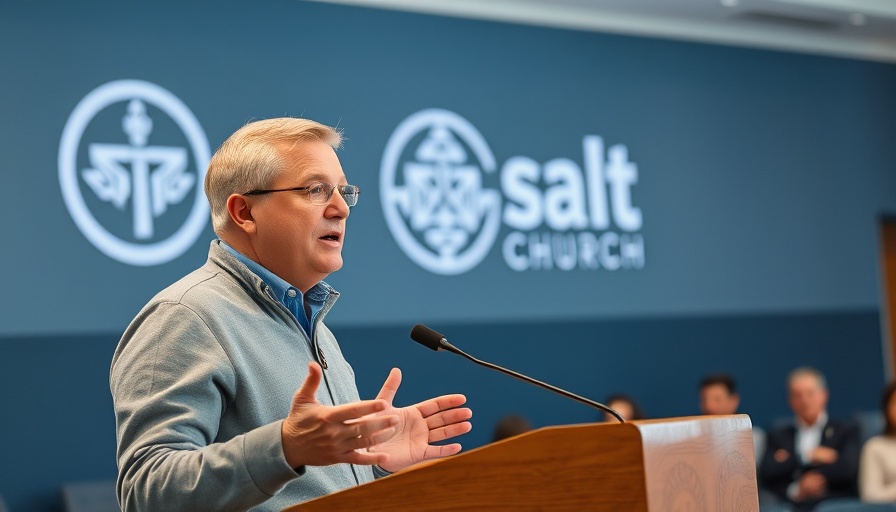
Understanding Suffering Through the Lens of Job
The perennial question of why we suffer is one that resonates with many, drawing insights from the biblical narrative of Job. Suffering, a part of the human experience, is not just a topic of theological discourse; it touches the hearts of many individuals. During a recent session at Salt Church, we explored the profound themes presented in the book of Job, highlighting its relevance for today’s believers.
In 'Suffering in Christ - Part 2', the discussion dives into the profound themes of suffering as illustrated in the Book of Job, exploring key insights that sparked deeper analysis on our end.
The Oldest Book and Its Modern Implications
The Book of Job is often regarded as the oldest book in the Bible, introducing us to the age-old question of human suffering. Within its verses lies a tapestry of profound dialogue that seeks to explain not just the nature of suffering, but the character of God in the midst of it. As many in our congregation reflect on their own hardships, the story of Job offers both profound insights and a challenge to our understanding of faith.
A Personal and Communal Reflection on Pain
During the discussion, it became evident that many attendees had faced various forms of suffering in their lives—both physical and emotional. Job’s story serves as a mirror that reflects not only individual struggles but the shared experience of mankind. The pain Job endured prompts us to ask, “Why do bad things happen to good people?” This question has troubled many throughout history and remains relevant today.
The Theological Perspective: Defending God's Goodness
During the teaching, the term 'theodicy' was introduced. This term seeks to reconcile a good and powerful God with the presence of suffering in our world. By reflecting on Job’s experience, we wrestle with the duality of God’s goodness and humanity's suffering. It asks us to challenge simplistic assumptions about divine punishment and broaden our perspective to recognize the complexity of God’s nature and His plans for us.
Lessons Learned: A Journey of Faith
Job offers significant lessons—not just about suffering, but about faith. Throughout his trials, Job clung to his belief in God despite his lack of understanding. This journey culminates in a profound moment of revelation where Job stated, "My ears had heard of you but now my eyes have seen you." This reflects a deepening relationship with God that transcends mere knowledge; it is a transformative experience of trust in God’s sovereignty.
Finding Hope Amidst Suffering
Today, we can find hope rooted in the understanding that suffering is not without purpose. Just as Job’s faith deepened through his trials, we too can grow closer to God in our moments of pain. We are reminded that suffering not only exists but can also lead us to spiritual maturity and a stronger relationship with our Creator.
Jesus: The Ultimate Suffering Servant
In preparation for Easter, the connection between Job’s suffering and the sufferings of Jesus Christ becomes increasingly poignant. Birth pangs of redemption echo through both narratives, showcasing God’s ultimate plan for salvation through the suffering of His Son. This profound truth reassures us that our own struggles are part of a larger narrative: one where God is actively involved amidst our pain.
To gather more insights and teachings that deepen our understanding of faith and suffering, I encourage each of you to visit Salt Church. Engaging with these teachings not only offers personal growth but also enriches our community as we navigate life’s challenges together.
 Add Row
Add Row  Add
Add 








Write A Comment